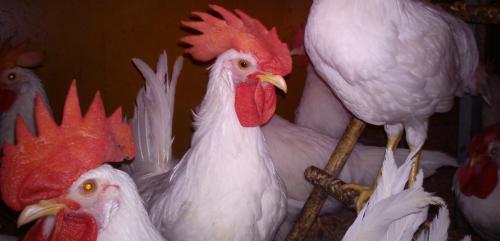Conclusions
This study shows that a six day long intermittent stress treatment has short-term effects on the chickens, especially for chickens stressed early in life and for chickens stressed in early adolescence. Female chickens were more affected by the stress than male chickens were. The short-term effects included a lower emotional reactivity, indicating a suppressed HPA axis response.
Stress early in life had a larger effect on adult behaviour than stress during adolescence, and chickens stressed early in life seemed to have a higher emotional reactivity and performed slightly poorer in the associative learning task. A long-term result in chickens stressed at adolescence might be a lower emotional reactivity, although the support for this is weak.
The results of this study imply that the second week of life is a period when the chicken is more sensitive to stress than adolescence is.
Acknowledgements
I would like to thank my supervisor Per Jensen for encouraging support throughout the work on this project. A special thank you to PhD Mia Ericsson and postdoc Rie Henriksen for letting me be a part of their project and for a good collaboration during the practical work, as well as for help and encouragement.

Responsible for this page:
Director of undergraduate studies Biology
Last updated:
05/20/13
